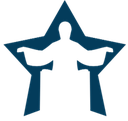
Simposio 5. Universidad, conocimiento e innovación para el desarrollo sostenible.
UCT
XIV Taller Internacional “Universidad, Ciencia y Tecnología”.
Resumen
Los procesos de aprendizaje están totalmente influenciados por el uso intensivo de las tecnologías (Rush, 2011), y se ha mostrado que las redes tecnológicas de comunicación se han convertido en una herramienta que permite el aprendizaje colaborativo e involucra espacios de intercambio de información que fomentan la cooperación. Una de las herramientas más representativas de la Web 2.0, por ejemplo, las redes sociales, no deben ser obviadas para su estudio, ya que su arraigo y fascinación en los estudiantes son una posibilidad didáctica enorme; su uso en las universidades angolanas, en particular en Luanda, es cada vez más notorio.
La Universidad angoleña é llamada para nuevos retos para creación de competencias capaces de responder a los nuevos desafíos que les presenta en el siglo XXI,
Se ha resaltado el papel significativo que tiene el docente, puesto que participa en el proceso de generar conocimientos junto con el estudiante de forma construida y compartida; a partir de esto, se entiende que los procesos centrales del aprendizaje son la organización y comprensión del material informativo, ya que el aprendizaje es el resultado de la interpretación.
En este trabajo también se analizaran la existencia de gran desafío en la incorporación de las Tecnologías de la Información y las Comunicaciones al subsistema de Enseñanza Superior en la Universidad angoleña orientadas a la obtención de mejores resultados de interacción pedagógica y aprendizaje significativo y que cada estudiante tenga la opción de planificar e implementar su propio estilo de aprendizaje.
Abstract
Learning processes are totally influenced by the intensive use of technologies (Rush, 2011), and it has been shown that technological communication networks have become a tool that allows collaborative learning and involves spaces for the exchange of information that foster The cooperation. One of the most representative tools of Web 2.0, for example, social networks, should not be ignored for its study, since its roots and fascination in students are an enormous didactic possibility; Its use in Angolan universities, particularly in Luanda, is increasingly noticeable.
The Angolan University is called for new challenges to create competencies capable of responding to the new challenges presented to them in the 21st century,
The significant role that the teacher has has been highlighted, since he participates in the process of generating knowledge together with the student in a constructed and shared way; From this, it is understood that the central processes of learning are the organization and understanding of the informative material, since learning is the result of interpretation.
This work will also analyze the existence of a great challenge in the incorporation of Information and Communications Technologies to the Higher Education subsystem in the Angolan University aimed at obtaining better results of pedagogical interaction and meaningful learning and that each student has the option to plan and implement your own learning style.
Sobre el ponente

Dr. Augusto Da Silva Sachonga
